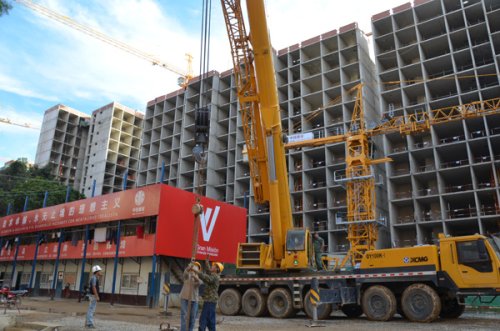
GB Times | 6 March 2018
ICC court plans to arbitrate in Belt and Road disputes
by Janne Suokas
The International Court of Arbitration of the International Chamber of Commerce (ICC court) plans to offer its services for settling disputes among companies participating in China’s Belt and Road trade initiative.
The ICC court said on Monday that it had established a commission to explore dispute resolution opportunities arising from the initiative, which has been proposed by China to boost trade and infrastructure investment in over 65 countries from Asia to Europe and Africa.
The commission’s chair Justin D’Agostino said that the ICC, which is headquartered in Paris and has secretariats or national committees in over 100 jurisdictions, was well-suited to Belt and Road disputes.
“ICC is already a world leading provider of arbitration and mediation services, with tried and tested mechanisms and a strong pool of arbitrators and mediators. It is ideally placed to provide appropriate, effective dispute resolution services to parties all along the New Silk Road,” D’Agostino said in a press release.
To highlight its Belt and Road capabilities, the ICC is planning a series of events in China’s mainland, Kazakhstan, Kyrgyzstan, Nigeria, Southeast Asia, Japan and Hong Kong.
Belt and Road courts
The announcement follows news reports from January that China is planning set up its own international commercial courts to settle disputes, that have reportedly increased as Chinese companies have stepped up investment in countries covered by the Belt and Road initiative.
While the details of the plan remain unclear, these courts would be set up by the Supreme People’s Court in Beijing, Xi’an and Shenzhen to handle cases arising from different geographical locations along the New Silk Road.
An official from the China Council for the Promotion of International Trade told Chinese media Yicai.com at the time that the rationale for establishing these news courts was that China and many other countries do not adapt well to current way of dispute settlement, which often uses US and European common law and English language.
However, international construction contracts are often complicated, and in case of disputes, it is up to the parties to decide whether to submit their case to local courts or to some international arbitration body, such as Singapore’s International Commercial Court, the Hong Kong International Arbitration Centre, or the ICC court.


